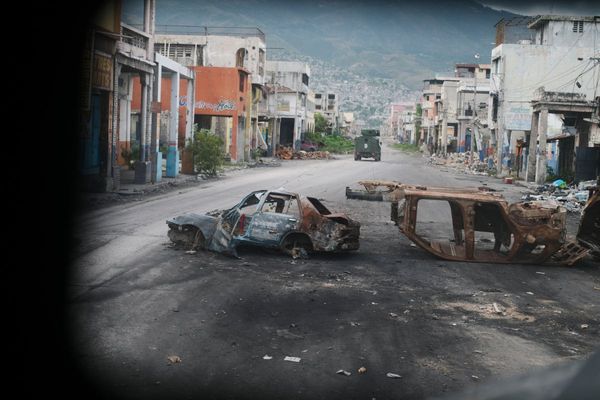NSW Police believed a "key challenge" of finding researchers to help with a landmark review of dozens of suspected gay hate deaths was that academics "connected to the gay community" may lack independence, an inquiry has heard.
The work of Strike Force Parrabell is being scrutinised at the special commission of inquiry, as it investigates unsolved deaths between 1970 and 2010 which may have involved LGBT bias.
Under the strike force, detectives reviewed 88 cases within that period to determine whether bias was involved, while a team of academics from Flinders University reviewed their methodology and process and also weighed in.
Its former commander, Assistant Commissioner Tony Crandell, today defended the project and the independence of the academic review as he was grilled about the tendering process.
The inquiry saw a police request for quotation from August 2016, after a series of emails explored which researchers could be used.
"One of the key challenges is locating suitable, qualified and independent researchers," the document said.
"Many researchers in this area are connected to the 'gay community' and may not be as independent as desirable."
While not part of the drafting of the document, Assistant Commissioner Crandell was pressed about the meaning of that warning.
"They may be part of the gay community, they may have just devoted some time to researching gay and lesbian issues, that there's many, many researchers that fit into that category," he said.
"Why would that make them not as independent as desirable?," Counsel Assisting Peter Gray SC asked.
"I don't know," the witness replied.
The Commissioner, Justice John Sackar, asked whether the document was suggesting a person connected to the gay community could not be objective, which Assistant Commissioner Crandell denied.
"Then why on earth would you put this in the document?" the commissioner asked.
"And how would you exclude, by the way, somebody who was homophobic?" he followed up.
Assistant Commissioner Crandell said he was unsure how a homophobic researcher would be identified.
"Isn't it saying, in effect, no gay researchers are likely to get this job?" Mr Gray asked.
"No, that's completely inappropriate," Assistant Commissioner Crandell replied.
Mr Gray later asked whether the wording sent "a rather unfortunate message", which was rejected.
"I think it indicates challenges that may or may not exist. That's not exclusionary, in my view," the witness said.
He assured the inquiry members of the gay community as researchers would not have been excluded from the tendering process, pointing out there was a connection to the community in the Flinders team.
That team included Associate Professor Derek Dalton and Professor Willem de Lint, who Assistant Commissioner argued had "an interest and a connection with the gay community" because they had written about topics in that area.
Earlier this week, Justice Sackar rejected an argument from the barrister representing NSW Police that Strike Force Parrabell's methodology and adequacy fell outside the inquiry's terms of reference.
Assistant Commissioner Crandell repeatedly denied suggestions Strike Force Parrabell was a collaborative process with a goal of achieving consensus between police and researchers.
In July 2017, Associate Professor Dalton emailed him a draft of the academics' report and said they had "diligently tried to strike a fair balance".
He said they had "very rarely" had to criticise NSW Police while explaining how painstaking and thorough the review process was.
"However, it bears emphasising that some inherent criticism (all of it levelled at police from a past era) will ensure our report is taken seriously by the public of NSW," his email read.
"Does that indicate to you that he saw his role as assisting the police from a PR point of view?" Mr Gray asked.
"I'm not sure, I don't know why he would put that in there. I wasn't aware that he was necessarily going to criticise the police, to be honest," Assistant Commissioner Crandell replied.
A final report was emailed the following month, with a suggestion that police could read it "with a view to spot anything that you aren't entirely happy with".
"If you are aggrieved by any content (we hope you aren't) you must feel free to say so and we can discuss the possibility of modifying the text," the academic offered.
Assistant Commissioner Crandell said this was because the researcher "wanted to get particularly the language right".
The inquiry continues on Monday.







